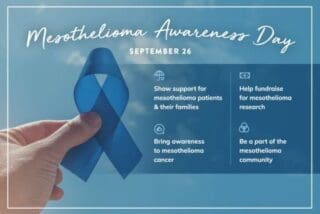Think of hexavalent chromium and you may recall the movie Erin Brockovich. But the health consequences of exposure to this harmful contaminant are more devastating than anything you have seen in the movies.
At Qarmat Ali, a water treatment plant in Iraq, at least ten members of the Oregon Army National Guard were exposed to hexavalent chromium. They were attempting to protect employees of KBR, a war contracting company. The contaminant was spilled by Iraqis.
If you didn’t know, hexavalent chromium is so toxic that exposure to a grain-sized amount greatly increases a person’s likelihood of developing certain cancers, including lung and brain cancer. The service personnel who were exposed at Qarmat Ali were told that the exposure would not result in any serious health problems, and were given excuses by KBR as to why they were suffering from various symptoms, including nose bleeds [KBR told them that this was a reaction to the desert sand].
Now, a total of 21 soldiers from Oregon and other states have filed a lawsuit against KBR. However, the company firmly believes that it was not at all responsible for the spillage of hexavalent chromium at the Iraq plant, and that the company went so far as to post warning signs about the dangers of the substance. KBR blames Army engineers for the incident.
U.S. Senator Ron Wyden from Oregon met with some of the men exposed to hexavalent chromium during a press conference recently. One man, veteran Larry Roberta, made his way up to the podium to speak. As he stood next to Sen. Wyden, Roberta coughed and struggled to catch his breath. His breathing and stomach problems are a result of hexavalent chromium exposure.
“There was no way to get away from it [hexavalent chromium],” Roberta said. “Our job was to watch KBR’s back.”
In addition to the 21 individuals who filed suit, the Oregon National Guard is still seeking about 40 additional soldiers who may have been exposed and did not respond to a letter sent by the Guard.
Sen. Wyden thanked Roberta at the press conference, and became visibly angry after watching him struggle in front of reporters and community members.
“Precautions should have been taken and they were not,” Sen. Wyden stated. “That is inexcusable. The soldiers have become critically ill…that, again, is inexcusable.”
Roberta testified in front of the Oregon Legislature in 2009 in an attempt to start a foundation for soldiers who develop cancers as a result of hexavalent chromium exposure. The 44-year old veteran also started a website dedicated to all veterans who may have been exposed and are now suffering as a result.
Most of the men exposed are in their mid-thirties or early forties, and have children. All are worried about what will happen to them health-wise in the future.
Former Sergeant Major Kevin Stanger of Carlton, Oregon, asked the media at the press conference to imagine the soldiers standing in swirls of dust at the water treatment plant, with “this stuff [hexavalent chromium] all over the place.” It was close to 140 degrees, and the men were wearing heavy body armor and trying to stay hydrated. His fellow soldier, Stephen Mueller, said he now has what he describes as a “chest cold year round.” He came on behalf of the soldiers who were exposed but are still actively serving in the military and cannot speak out.
Former medic Sergeant Jesus Bruno told the media that he is afraid that he won’t see his three children grow up.
“This stuff is like a ticking time bomb. You don’t know when it’s going to go off.”
The same could be said about asbestos. Exposure to asbestos – even in small amounts, like hexavalent chromium – may lead to the development of mesothelioma, a fatal form of cancer that affects about 3,000 Americans each year. Well over 20% of those diagnosed happen to be veterans. Asbestos diseases have a latency period of up to fifty years, so those exposed may be well into their sixties or seventies when mesothelioma symptoms arise. Like the symptoms attributed to hexavalent chromium, mesothelioma symptoms include difficulty breathing and a lingering cough.
Occupational Safety & Health Administration (OSHA) provides detailed information about Hexavalent Chromium.





